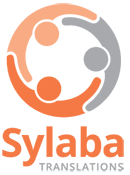Destination weddings are on the rise, offering couples a unique and romantic way to tie the knot. However, with this growing trend comes the challenge of navigating legal requirements, particularly when it comes to foreign marriage certificate translation. In this comprehensive guide, we’ll explore the crucial aspects of translating your marriage certificate for legal recognition in your home country.
Researching Foreign Marriage Certificate Translation Needs
Getting married in a foreign country involves various legal and administrative processes, and understanding translation requirements is crucial to ensure that the marriage is recognised in your home country and by relevant authorities. Here’s an overview of the translation needs and the nuances of different translation types:
Certified Translation:
Purpose: Certified translations are often required for legal documents to be recognised by official institutions. These translations are typically used for documents like marriage certificates, birth certificates, and legal contracts.
Certification Process: A certified translator or a translation agency provides a signed statement affirming the accuracy and completeness of the translation. The statement usually includes the translator’s credentials and contact information.
Notarised Translation:
Purpose: Notarised translations go a step further by having the translator’s signature notarised by a notary public. This additional step provides an extra layer of authentication.
Notarisation Process: After the translation is completed, the translator signs an affidavit in the presence of a notary public, who then affixes their seal and signature to the document.
Apostilled Translation:
Purpose: In some cases, an apostilled translation may be necessary for documents to be recognised internationally, especially if the countries involved are part of the Hague Apostille Convention.
Apostille Process: An apostille is a certificate issued by a designated authority (usually in the country where the document was issued) confirming the authenticity of the signature, seal, or stamp on a document. This process is particularly important when dealing with foreign authorities.
Understanding Legal Requirements:
Home Country Regulations: Research the specific translation and certification requirements of your home country. Different countries may have varying rules and expectations regarding the translation of documents for legal purposes.
Foreign Country Regulations: Additionally, understand the translation requirements of the country where the marriage is taking place. Some countries may have specific rules about the language and format of translated documents.
Choosing Qualified Translators:
Certified Translators: Ensure that the translator or translation agency providing the services is qualified and recognised. In many cases, using a certified translator is a requirement.
Timeline Considerations:
Plan: Translation processes, especially if notarisation or apostille services are involved, may take time. Plan well in advance to avoid delays in your wedding plans.
By delving into these translation nuances and understanding the specific requirements of your home country and the foreign country where you plan to marry, you can navigate the process more smoothly and ensure that your marriage is legally recognised in both locations. Consulting with legal professionals or authorities in both countries can provide additional guidance on the specific requirements you need to meet.
Finding the Right Translator for Foreign Marriage Certificate Translation
When it comes to translating legal documents such as marriage certificates, selecting a qualified professional is essential. In many cases, especially if you’re dealing with documents for legal purposes, choosing a translator accredited by organisations like the National Accreditation Authority for Translators and Interpreters (NAATI) can provide numerous benefits. Here are some advantages of selecting a translator with expertise in marriage certificate translation service:
Accuracy and Precision:
Linguistic Competence: NAATI-accredited translators have demonstrated proficiency in both the source and target languages. This ensures accurate and precise translations, crucial for legal documents like marriage certificates where details matter.
Adherence to Legal Standards:
Legal Terminology: Marriage certificates often contain specific legal terminology. A translator with expertise in legal translations, including familiarity with the legal terminology related to marriage, can ensure that the translated document adheres to the required legal standards.
Recognition by Authorities:
NAATI Certification: Many government and official bodies recognise and often require NAATI certification for translated documents. Choosing NAATI-accredited translator increases the likelihood that the translated marriage certificate will be accepted by relevant authorities both in the foreign and your home country.
Reliability and Professionalism:
Code of Ethics: NAATI-accredited translators adhere to a strict code of ethics, emphasising professionalism and confidentiality. This ensures that your personal and sensitive information in the marriage certificate is handled with the utmost care and confidentiality.
Specialisation in Marriage Certificate Translations:
Understanding Nuances: Translating marriage certificates requires an understanding of cultural and legal nuances associated with marriage. Translators specialising in marriage certificate translation service are more likely to be aware of these nuances, ensuring that the translated document accurately reflects the original intent and legal implications.
Efficiency and Timeliness:
Expertise Streamlines Process: Translators experienced in marriage certificate translations are likely to be more efficient, streamlining the translation process. This can be particularly important when working within tight timelines, such as when planning a wedding in a foreign country.
Access to Translation Agencies:
Agencies with Specialisation: Engaging translation agencies that specialise in legal and marriage certificate translations can be beneficial. These agencies often have a pool of qualified translators with specific expertise in handling marriage-related documents.
Selecting a qualified translator, especially one with NAATI accreditation and expertise in marriage certificate translation service, ensures that your legal documents are accurately translated, adhere to legal standards, and are recognized by relevant authorities. When choosing a translation service, consider the qualifications, experience, and specialisation of the translator or agency to ensure a smooth and reliable translation process for your marriage certificates.
Submitting the Translated Document
Submitting a translated marriage certificate for verification involves a process that varies depending on the requirements of your home country. Below are general steps to guide you through the submission of a translated certificate.
Certified Translation:
Ensure that the translation of the marriage certificate is done by a certified translator. Some countries or authorities may have specific requirements for the translator’s qualifications. The translation should accurately reflect the content of the original document.
Notarisation of Translation:
In some cases, you may need to have the translated document notarized by a notary public. This adds a layer of authentication to the translation.
Contact the Relevant Authorities:
Check with the authorities in your home country responsible for handling foreign marriage certificates. This is often the vital records office, registry office, or a similar government agency.
Submission Methods:
Inquire about the accepted methods of submission. Some authorities may accept documents by mail, in person, or through an online portal. Choose the method that is most convenient and compliant with the requirements.
Fees and Payments:
Be aware of any fees associated with the submission of translated and certified documents. These fees can vary, and it’s essential to factor them into your overall budget for the process.
Documentary Requirements:
Ensure that you have all the required documents in order. This may include the original marriage certificate, the translated and notarized version, and any additional forms or declarations required by your home country.
Application Forms:
Complete any application forms that are necessary for submitting the translated marriage certificate. These forms are typically available on the website of the relevant government agency.
Wait for Processing:
Understand that the processing time for verifying and recording foreign marriages can vary. Be patient and, if possible, inquire about the expected processing time from the relevant authorities.
Follow Up:
Keep track of your application and follow up with the authorities if there are any delays. Having a reference or case number can be helpful when inquiring about the status of your submission.
Record Keeping:
Keep copies of all documents submitted, including the original marriage certificate, the translated version, and any receipts or acknowledgment of submission. This documentation can be important for future reference or if you need additional copies.
Legalisation if Required:
If your home country requires additional legalisation of the translated document, such as obtaining an apostille, ensure that you complete this step before submitting the documents to the relevant authorities.
Remember to check with your home country’s embassy, consulate, or relevant government agency for the most accurate and up-to-date information on the submission process for translated marriage certificates. Each country may have unique requirements and procedures that you need to follow.
Conclusion
Planning a destination wedding requires careful consideration of legal processes, particularly in foreign marriage certificate translation. Understanding certified and notarised translations, as well as potential apostille needs, is crucial. By addressing home and foreign country regulations, choosing professional translation services, and efficiently submitting documents, couples can ensure their marriage is legally recognised.
Explore our website for in-depth guides on country-specific requirements, assistance in selecting qualified translators from professional translation services, and insights into legal processes. Engage with our community, seek personalised advice, and make your destination wedding a seamlessly recognised celebration. Start your journey by exploring our resources—your path to a globally recognised wedding begins here.
Related Posts

Get a quote today
"*" indicates required fields
Subscribe today to receive the latest insights and updates from Sylaba Translations









